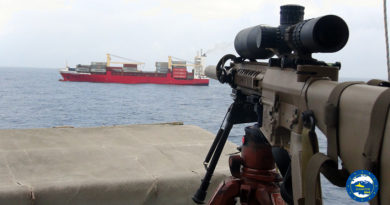[Yugoslavia Memory of a disaster] 2000-2010: Managing, stabilizing, reuniting Europe?
(B2) From 2000, and the European Summit in Zagreb, under the Belgian presidency, Europe is implementing a new strategy for stabilization and gradual accession of the region to the European Union. Negotiations are underway with most countries in the region. Strategy that apparently works. The region is not pacified. But stabilization is gradually gaining ground. This is the agenda – ultimately aiming for all countries to join – which was set in Thessaloniki in 2003.
Very quickly, Croatia, first of all, then, in spite of serious incidents, in 2001, Macedonia, asked for the status of candidate country. Montenegro separates from Serbia, so as not to be delayed in this European rapprochement. The Bosnian problem is not settled. But it is the question of Kosovo (which has been the epicenter of the Yugoslav crisis for 20 years) which remains the thorniest to resolve.
You don't have to hide. The negotiation of these stabilization agreements is, in fact, a test phase for accession as such. These are the same subjects that are negotiated. And, very often, the actual content of the negotiations is indicative of the “real” policy of the country involved, beyond public political declarations (cf. negotiation conditions of the agreement with Serbia). In fact, if the stabilization agreement is well applied, the negotiation of full and complete membership can then proceed very quickly. Placed under a sort of international protectorate – under a UN mandate and mixed administration (international – European) – the former Albanian province of Kosovo failed to gain independence in early 2007. The Ahtisaari plan was rejected by the Russians and the Serbs.
At the summit in Brussels, in June 2007, the Europeans have other fish to fry. They seek to heal their wounds resulting from the failure of the European Constitution and to put a new European Treaty back in the saddle. Will the failure of 1991 be repeated on a deal – deepening Europe by mourning the Balkans or dividing the Balkans? Reality takes a different turn. Even if the protagonists do not all recognize it then openly, the lesson of the past is in everyone's head. Several of the protagonists lived through the failure of the 1990s and do not want to repeat it. The Portuguese Barroso, at the head of the Commission, the Luxembourgish Juncker, the French Bernard Kouchner, the Swedish Carld Bildt, the high representative Javier Solana… are, in a way, “orphans” of the first European “powerlessness”. Thus, for long hours in June, parallel to the discussions led by the Heads of State, the Ministers of Foreign Affairs tried to preserve a unity undermined by the possible independence of Kosovo ("it's trench warfare, it's is almost worse than in Kosovo” said a participant in this meeting). These discussions will continue for several months (during an EU-NATO dinner, in early December, in particular), in order to bring positions closer together.
2008. This is Slovenia, the first of the former Yugoslav republics to have declared its independence, and the only one so far to have succeeded in joining the EU - also the first of the new ex-communist states - that it is up to you to manage these questions as EU Presidency. Singular reversal of history. In particular, it must fix a date of accession and a roadmap for its former partners in Yugoslavia; ahead of France, which will take over the presidency in the second half of 2.
Serbia will it ask to join Europe, quickly? In any case, the European Commission, following this stabilization policy, is determined to speed up the steps, in exchange for the independence of Kosovo. A region that, paradoxically, during the negotiations, Serbia never asked to be included in the negotiations (a fact little known to the public and completely ignored in Serbia).
2009-2010. The European objective, even if it is not announced, is a scenario of the type: membership of most of the countries of the zone, especially of the two historical enemies - Serbia and Croatia - in the same movement, in the absence of at the same time, with the gradual launch of the autonomy and then the independence of Kosovo.
If the European Union succeeds in Kosovo in 2008, and in the Balkans in 2009, where it failed in the 1990s, Europe will at least have succeeded in turning a painful page in its history. If it fails, it will be terrible for the region, for Europe too. In any case, she will not escape a fundamental question: her responsibility in past events.

